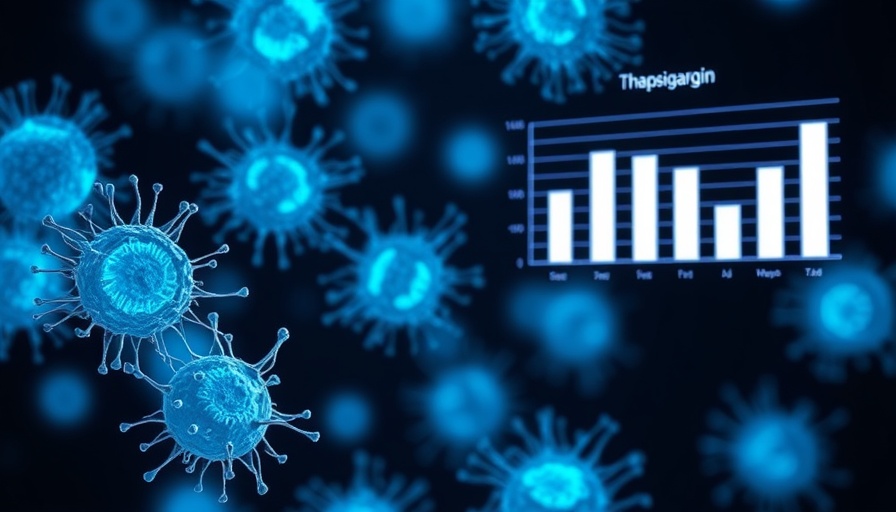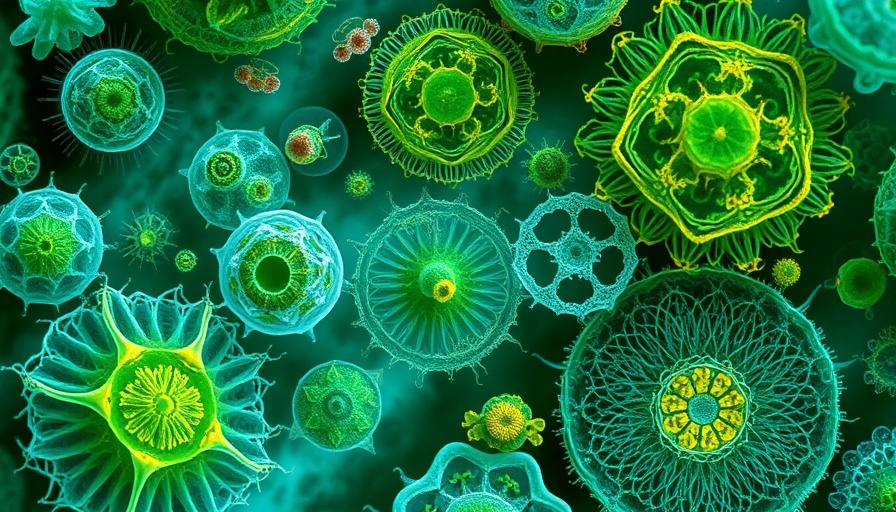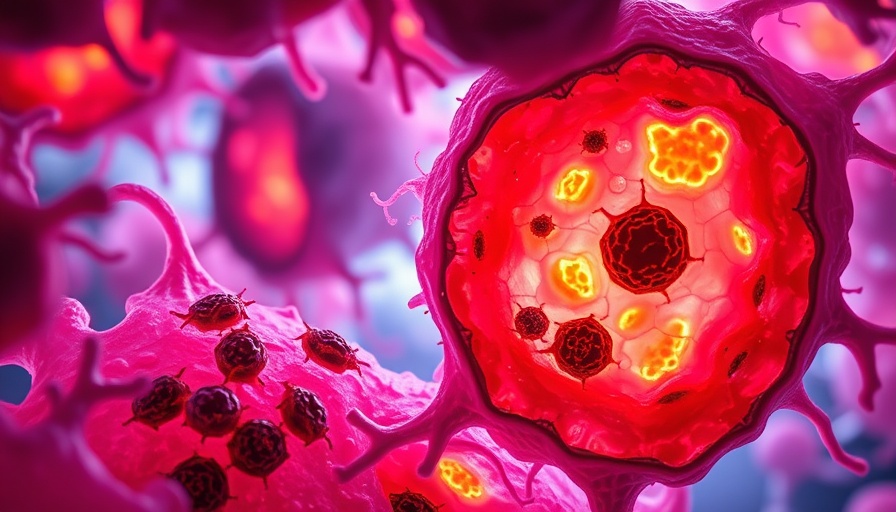
Thapsigargin: Unraveling a New Path in Cancer Cell Death
In the realm of cancer research, the focus on how cancer cells die has significant implications for treatment strategies and patient outcomes. One surprising contender in this field is thapsigargin (TG), a compound traditionally noted for its ability to inhibit a pump responsible for regulating calcium levels within our cells. While often categorized as an apoptosis inducer, recent findings suggest that TG triggers a type of programmed cell death that bypasses the classical apoptotic pathways—a revelation that could redefine therapeutic approaches to cancer.
Understanding the Mechanisms of Thapsigargin-Induced Cell Death
Thapsigargin works by halting the action of the sarco/endoplasmic reticulum Ca²⁺-ATPase (SERCA), leading to an increase in cytosolic calcium levels. This rise can set off a cascade of events that typically lead to apoptosis, characterized by tell-tale signs like nuclear fragmentation and cell shrinkage. However, researchers unveiling the effects of TG on basophilic leukemia cells have discovered something quite different. Instead of the expected apoptotic features, they witnessed a non-apoptotic form of cell death that bore striking similarities to autosis—an autophagy-dependent death characterized by ballooning of the perinuclear space and a unique structural disruption of organelles.
Why This Matters for Cancer Treatment
These findings aren’t just academic curiosities; they hold profound implications for the treatment of apoptosis-resistant cancer cells. Cancer often develops mechanisms to evade apoptosis, leading to treatment failures. However, if TG effectively induces a non-apoptotic form of cell death, it might provide a new therapeutic strategy for challenging tumors resistant to conventional treatments like chemotherapy. Thapsigargin could be particularly beneficial in targeting cells that have developed a way to escape the apoptotic pathway, bringing hope to those navigating treatment-resistant cancers.
Exploring Cellular Health and Longevity
For health-conscious individuals, the implications of research like this extend beyond cancer treatment. The study of thapsigargin can shed light on cellular health, an integral theme in longevity research. By understanding how different agents, including compounds like TG, influence cell death and survival, we equip ourselves with knowledge that can enhance our own healthspan. Techniques like biohacking aim to optimize wellness at the cellular level, revealing strategies for maintaining vitality well into older age.
Innovative Biohacking Tips for Enhanced Longevity
As we explore how thapsigargin influences cell fate, let’s not forget about practical strategies for longevity that incorporate scientific insights. Here are some biohacking tips to consider:
- Embrace a Healthy Diet: A diet rich in antioxidants, omega-3 fatty acids, and low in processed sugars can support cell vitality and longevity.
- Incorporate Supplements Wisely: Certain supplements, like resveratrol and curcumin, have been shown to provide protective effects on cellular health.
- Focus on Fitness: Regular physical activity can help bolster cellular health and assist in longevity by improving circulation and reducing cellular stress.
Final Thoughts: The Future of Health Is Inside Us
The exploration of thapsigargin not only challenges our understanding of how cancer cells die but also invites us to consider the broader implications for health and longevity. As science reveals the intricate workings of our cells, leveraging this knowledge is key to adopting health strategies that extend our lifespan in a meaningful way. Understanding unique cellular events paves the way for innovations in treatments, prevention strategies, and personal wellness journeys.
So, as you embark on your journey toward a healthier lifestyle, remember: optimizing cell health isn't merely about anti-aging; it's about understanding how adaptive your body can be in combating disease and aging itself.
If you're intrigued by the potential of thapsigargin and other biohacking insights, stay informed and keep exploring the fascinating interplay of wellness and science!
 Add Row
Add Row  Add
Add 




Write A Comment